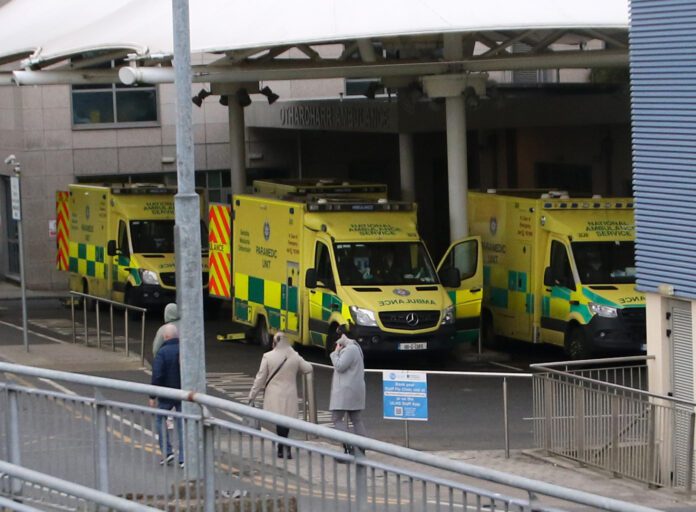
THE University of Limerick Hospitals Group has confirmed that it activated HSE operational contingency plans yesterday and directed the National Ambulance Service to bring patients from University Hospital Limerick (UHL) to other acute hospitals because of extreme levels of overcrowding.
Responding to claims that UHL had closed its doors to all non-emergency ambulances, apart from stroke and resuscitation patients, a spokeswoman for the hospitals group said they asked the ambulance service to activate those arrangements for a number of hours to support UHL’s response to “an internal major incident”.
“Non-critical patients were diverted to the closest alternative appropriate hospital. The most critically ill patients, such as those with suspected heart attack, stroke and those that were medically unstable continue to be conveyed to UHL during this time,” she said.
Meanwhile, a demonstration march is being organised in Limerick on Saturday,January 21 to highlight the overcrowding crisis at UHL.
Many in the region, including families of patients who have died at the hospital while waiting on trolleys in its over-crowded corridors have repeatedly called for the reopening of 24-hour emergency departments in Ennis and Nenagh that were closed in 2009.
A spokesman for the organisers of the planned march stated that “the people of Limerick have had enough”.
“We are demonstrating a protest on January 21st 2023, starting at the old courthouse Merchants Quay Limerick, through the city and out to UHL.”
He said he was calling for the “immediate resignation” of a number of the hospital’s senior management team.
“We are also calling for the immediate reopening of the emergency departments at Nenagh, Ennis, and St John’s to alleviate the waiting times at UHL,” he explained.
However, Health Minister Stephen Donnelly dismissed this course of action when asked about reopening the emergency departments last June.
“The clinical view on this is unambiguous. Doctors would say no because if you’ve got something seriously wrong with you, and you go to a small hospital, it doesn’t have all the specialties,” said Mr Donnelly.
“You may need one of those specialties, and it’s not there – now you’re in trouble, because now they have to get you to the bigger hospital anyway, and time matters in these cases,” he explained.









